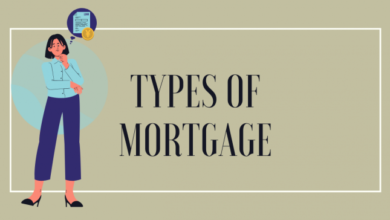Canadian Mortgage Rates in 2024 compared

Canadian Mortgage Rates in 2024 compared
Simply put, a mortgage is a loan from a bank or a mortgage lender to assist you in purchasing a home. The residence serves as a form of security for the money you’re borrowing.
We’re here to help you with the mortgage-related jargon like mortgage types, terms, amortization period and more. Read our guide to stay in the know about the top-notch Canadian mortgage lenders:
The Initial Steps – Pre-approval and Down Payment
The Pre-approval Process
There are a few things you need to know and do before you can get your dream home. Before you go looking for a property to purchase, it’s wise to get pre-approved by a bank so that you get an idea of how much you can afford. A pre-approval is a standard step in the mortgage process, which also protects buyers from risks.
So, what does a pre-approval get you? Let’s take a look:
- Knowledge of the maximum mortgage amount you’re eligible for
- A lock period of 60 to 130 days for the mortgage interest rates that you got approved for
Next, you’re probably wondering where to get pre-approved.
Both mortgage lenders (banks, credit unions, loan companies etc.) and mortgage brokers offer pre-approvals.
A useful tip:
You might want to opt for online mortgage rates comparison to gauge the market before getting pre-approved. Once you get a fair idea of what’s out there, you’ll find it easier to shop around for the best deals.
You’ll probably be paying your mortgage till long after you move in, so another great tool to know about the best rates would be a mortgage calculator.
Once you get pre-approved for a mortgage, your agreed-upon rate will be locked in for a period of 60 to 130 days, depending on the bank. Now your house-hunting can begin in earnest!
Down Payment on Mortgages
Property prices are steep, to say the least. Most of us don’t have the entire capital to finance our dream homes. Hence monthly mortgages are the go-to solution. But before you can start paying mortgages, you’re required to pay a portion of the price, called a down payment.
The amount you pay down is deducted from the property price, so the larger your down payment, the smaller your mortgage amount. If you put down less than 20% of the property price, you will need to pay mortgage insurance.
What we mean is this:
You might be on the lookout for the best Canadian mortgage rates with low down payment options but keep in mind that these come with an added charge – mortgage loan insurance.
New and resale property insured mortgages are now available from most lenders. For this reason, the carrying costs of a low down payment mortgage are higher than those of a typical mortgage since they include the insurance premium.
Key takeaway:
It’s to your advantage to put down as much money as you can because interest costs for a smaller mortgage are lower, adding up to significant savings over the long run.
Fixed-Rate Mortgages vs. Variable Rate Mortgages
With fixed-rate mortgages, the interest remains constant throughout the mortgage term. In contrast, variable or adjustable-rate mortgages (ARM) have rates that fluctuate throughout the term.
Fixed mortgage rates most commonly run for 5 years, and the Government of Canada determines these rates by way of its bond yields. The interest rates for variable mortgages are determined by the Bank of Canada’s lenders’ prime rates. Variable mortgages are given at a prime rate plus or minus a discount or a premium.
The Bank of Canada alters the prime rate based on the performance of the market. The inflation rate is shaped by factors such as unemployment, export, and manufacturing values.
Open vs. Closed Mortgages
An open mortgage is one in which you can pay off your mortgage amount either by increasing the number of repayments or by paying a lump sum. Closed mortgages either don’t allow prepayment or come with prepayment penalties. If you make a mortgage rate comparison, you’ll see that open mortgages come with higher interest rates while closed mortgages have low rates.
Another noteworthy difference:
Closed mortgages come with some of the best variable mortgage rates, and the prepayment penalties are lower than closed fixed-rate mortgages. That’s partly why closed mortgages are the popular choice in Canada.
So, who opts for open mortgages?
Buyers who take out mortgage loans for a short period of time and expect to pay them back expediently tend to choose open mortgages. These early payments can be sourced from:
- A substantial income hike
- Proceeds from the sale of a house
- An inheritance
Factors Affecting Your Mortgage Rate
At the end of the day, a mortgage is just like any other product you’d buy off the market. So, you’ll be looking for low mortgage rates while the lender will try to push for higher rates while also minimizing their risk. A blend of economic and personal factors affect Canadian mortgage lender rates.
The Global and Canadian Economy
GDP and unemployment rate are two economic growth indicators that have a bearing on mortgage rates. Consumer spending increases as the economy grows, and that includes consumers seeking mortgage loans to purchase homes. It’s a fact that financial markets around the world are linked.
As a result, mortgage rates in Canada fluctuate based on what happens in other parts of the world. However, the United States is where many Canadian banks borrow money.
Your Credit Score
The lender’s biggest concern is that you won’t pay back the loan. A high credit score can help alleviate this concern, as it shows the lender that you have a good track record of repaying your debts on time. Because of this, your interest rate may be lower than that of people with a lower credit score. If a borrower has an average credit score of 670 or 680 and no late or delinquent payments, a lender is likely to approve the loan.
Prepayment Risk
If you pay off your mortgage early, the lender is at risk of losing money. This is called prepayment risk. They can’t make as much money off of the money they’ve raised because mortgage interest rates have fallen since the term began. This means the interest rate on an open loan will be higher than on a closed one, which limits how much you can pay off early.
Banks vs. Mortgage Brokers
Back in the day, banks used to be the only destinations for mortgages. But today, the housing market offers a wide array of mortgage brokers and lenders, both digital and physical. Here, we’ve listed a few pros and cons of banks and brokers for securing mortgages so that you can decide which provider is right for you:
Pros of Mortgage Brokers
- Brokers will do most of the work on your behalf and negotiate the most affordable mortgage rates.
- Brokers generally offer their services for free if you have a decent credit score.
- Brokers have access to a broader range of lenders than you’d expect to get if you shop on your own.
- Many brokers have gone digital, and you can view your application process online and get customer care 24/7.
Cons of Mortgage Brokers
- Home-shoppers who still prefer brick-and-mortar mortgage lenders may not feel entirely comfortable with brokers.
- Some lenders don’t agree to work with brokers. So, if you have a specific lender in mind, it’s best to check that.
Pros of Banks
- If you prefer to have all your transactions in the same place, banks are a convenient choice.
- Banks often offer a combination of services with added perks like a free safety deposit box, waiving of banking fees, etc.
- Banks are the safest and most stable option.
Cons of Banks
- Banks don’t offer too much space for negotiation or product customization.
- Banking is time-consuming as you’ll have to do your own research.
- Credit bureaus don’t always combine multiple mortgage-related credit checks into one investigation. If that’s the case, shopping around for a mortgage at banks may harm your credit score.




